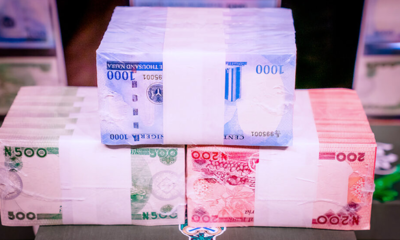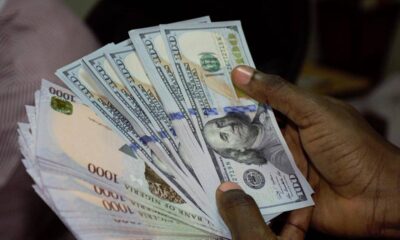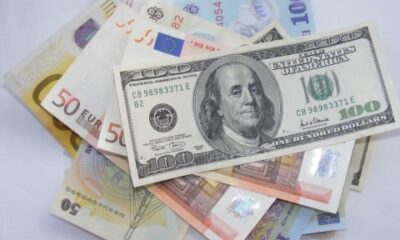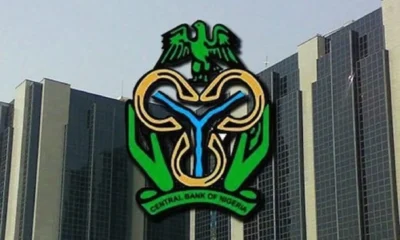Business
Naira Falls 50% Despite CBN’s Shutout Of BDCs

Since the Central Bank of Nigeria (CBN) prohibited the sale of dollars to bureau de changes (BDCs), the black market value of the dollar against the naira has fallen by approximately 50% reports have shown.
When the CBN announced a ban on dollar sales to Bureau de Change (BDC) operators in July 2021, the Naira was trading at around N500/$1. It is currently trading at an average of N755/$1.
Similarly, the official Investors and Exporters window (I&E) exchange rate between the Nigerian naira and the US dollar has dropped to N441.13/$1 from N410/$1 in June 2021.
Despite numerous interest rate increases and policies aimed at increasing the value of the Naira, the Naira has continued to fall in a number of markets.
At the 137th Monetary Policy Meeting on July 27, 2021, the Central Bank of Nigeria (CBN) took an unwavering stance against providing foreign exchange to Bureau de Change operators (BDCs).
At the time, the black market exchange rate had surpassed the N500/$1 mark, prompting a response from CBN Governor Godwin Emefiele, who blamed BDC operators for the depreciation, accusing them of engaging in “illegal activities” when foreign exchange is supplied to them and then sold on the black market.
He also claimed that BDC operators were creating false FX scarcity in order to make “abnormal” profits, putting the Nigerian financial system at risk.
He stated that the dollarization of the Nigerian economy, the reversal of the cashless policy, the joint ownership of multiple BDC by the same owners in order to obtain various FX, and, regrettably, international organisations and embassy patronage of illegal FX dealers were all detrimental to the CBN’s price stability goals.
The Association of Bureaux De Change Operators of Nigeria (ABCON) urged the Central Bank of Nigeria (CBN) to abandon the fixed exchange rate and allow the naira to float following the CBN ban. Despite calls for the Naira to be floated, the Central Bank of Nigeria (CBN) continues to intervene in the foreign exchange market through the Investors and Exporters window (I&E), at the expense of external reserves.
The foreign exchange strategy of the Central Bank of Nigeria (CBN) has resulted in a significant premium between official and parallel market rates.
Both the International Monetary Fund (IMF) and the World Bank have advised Nigeria to allow its currency to float freely in order to reflect market reality.
However, Godwin Emefiele, Governor of the Central Bank of Nigeria (CBN), defended the apex bank’s managed-float exchange rate system, emphasising that it was implemented to address the country’s unique challenges.
“Nigeria’s situation is very peculiar,” he explained, “which is why we have continued to engage the IMF and World Bank to demonstrate understanding of our local problems.” And they are showing comprehension.
“Yes, they want us to freely float the exchange rate, and you do know that this will have some impact on the exchange rate itself in the sense that when you allow that to happen, you will have some uncontrollable spiral in the country’s exchange rate,” he added.
Send Us A Press Statement Advertise With Us Contact Us
And For More Nigerian News Visit GWG.NG














